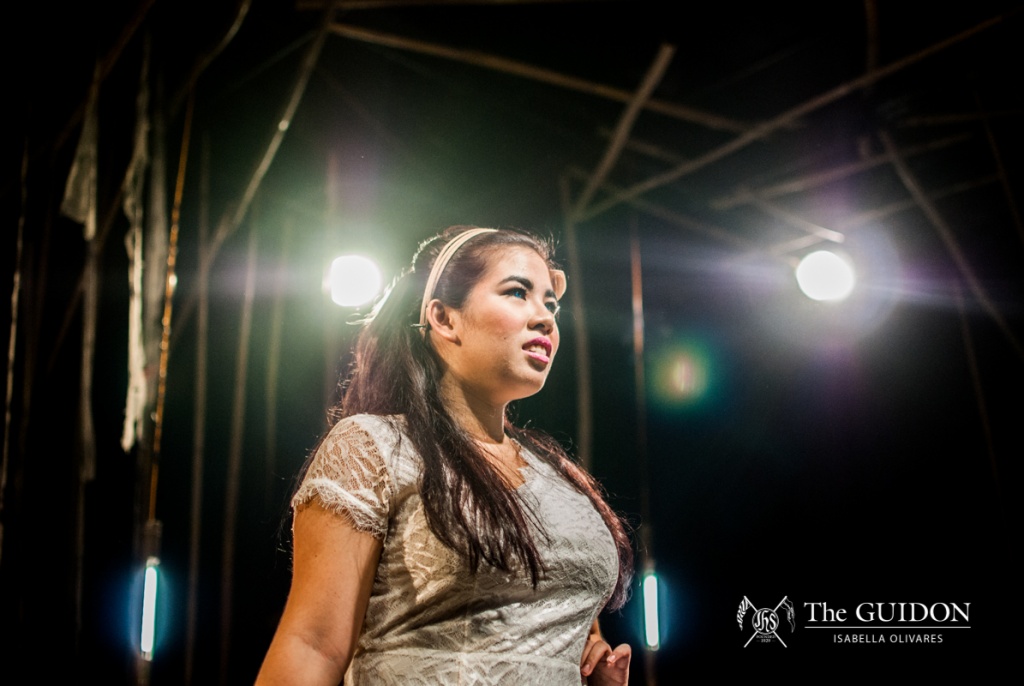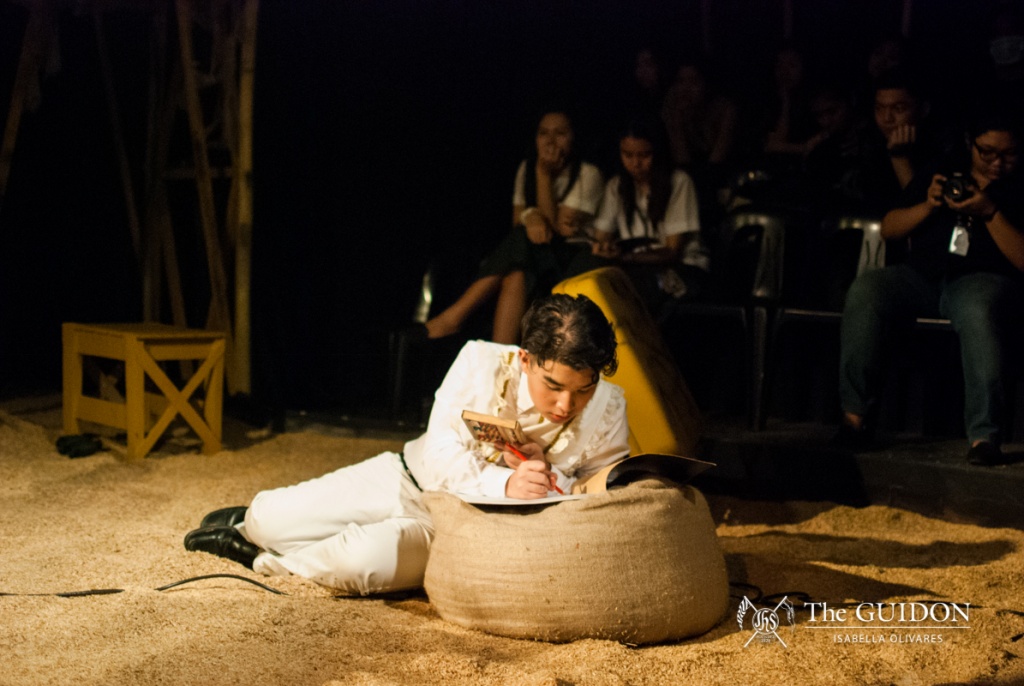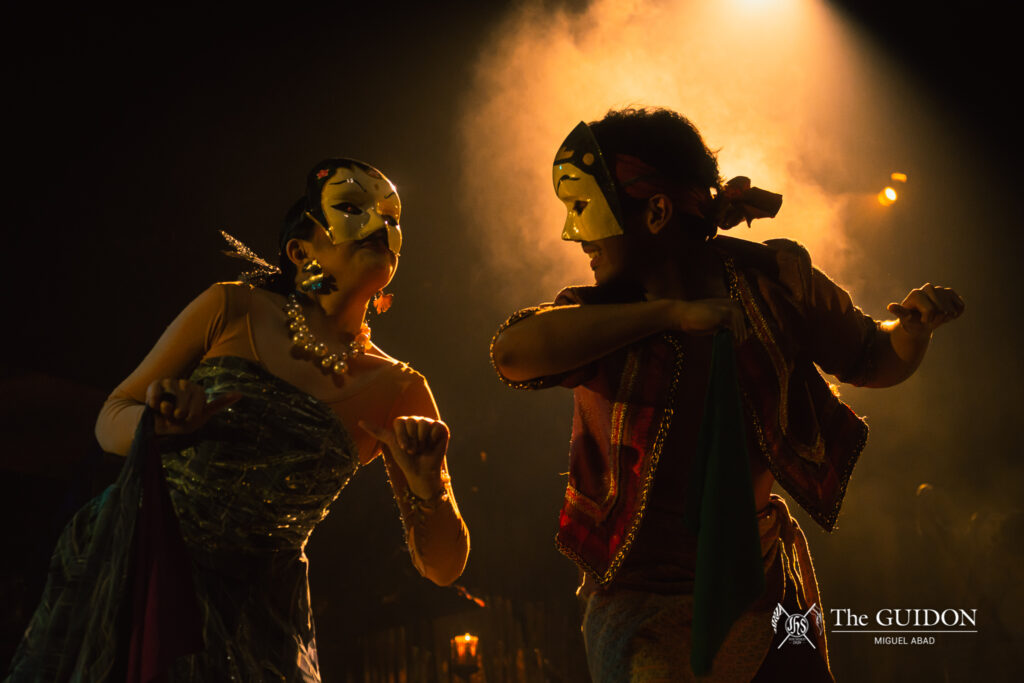The theater is filled with unease. It’s as if something dark and heavy lay in wait behind the curtains, creeping on energies before swallowing them whole. As audience members sit in the blackness of the scene, a twisted story unfolds right in front of their eyes: The world, and life as we know it, is in danger. This pervasive fear grips everyone in the vicinity, holding their breaths and stopping their hearts hard, like metal; like machines.
Opening Tanghalang Ateneo’s season this year is Robot Universal ni Rossum (R.U.R.), a science fiction play by Czech writer Karel Capek. R.U.R. is an existentialist drama that plays heavily on the themes of utopia and dystopia, culminating in one totalitarian world that puts into question the limitations of man and science when it comes to recreating life.
Directed by JK Anicoche and translated by Palanca awardee Guelan Varela-Luarca, the production stays as true to the original but manages to incorporate the sounds and sceneries of our native land: Set designer Kulay Labitigan made use of woodwork and earth tones that complimented the indigenous melodies by Teresa Barrozo. The weight and importance of the play’s message sits heavily on one’s chest as it unravels throughout the sinister struggle between bioethics and profit, a fight gloriously enacted by the bleak situation of Rossum’s followers.

The entirety of the floor is strewn with rice husks, piled heaps upon heaps to mimic the grainy sand of the remote island where the story takes place. Wooden plank boxes sit in a cluster at the center of the space at all times, adding to the tropical ambience. Plywood arches outline the stage’s entry points and a ceiling fixture of the same material dangles precariously over the middle of the stage; the look is rough, haphazard, and edgy—an ironic contrast with the play’s industrial theme that seems more suited to clean cut edges of metal and steel.
Outfitted in coattails luxuriously embroidered with gold appliques and tassels, the elegantly outfitted scientists seem to find themselves out of place in the midst of the rawness of the island setting. Though supposedly influenced by the advancement of technology, the props are reminiscent of precolonial Philippines: Bamboo cutlery, banana leaves, scrolls and plenty of hemp. The setting is a juxtaposition of both past and future to create a present scenario that strangely works.
The accompanying music is nothing complex: The soft sounds of nature and the steady tempo of tribal beats set the mood for the rural setting. The lights are a spectacle on their own—under the careful direction of Ninya Bedruz, the shifting lights masterfully captures the motions of the day, from the blistering midday sun to the subtle glow of the night.

The cast displays a perfect mastery of the archaic Filipino speech, flowing seamlessly from one scene to the next with nary a stutter; their diction and cadence played full conviction. The nightmare of Frankenstein is laid out by the six chaotic male leads—Avie Alcantara, Jerome Ignacio, Gab Tibayan, Jego Malillin, Jerome Flor, and Cholo Ledesma—whose play acting show the dangers of being godlike when very thing you created wants to destroys you. Though coming from different backgrounds and skill sets, they are united in their god complex and love for progress; working and conversing maniacally like the mad scientists they are becoming.
A stunning performance from Gel Basa stood. Filled with conviction and emotion, Basa‘s acting was top-notch with on-cue tears and laughter. She portrayed the vulnerability of human beings with her animated and heartfelt expressions which seemed to convey pain and joy a thousand times stronger.
Kudos to Jessica Orense’s portrayal of a robot whose gestures and expression were creepily accurate, as well as Flor‘s acting of an apocalyptic survivor overcome with grief and madness. The sentiments are heartfelt and heartbreaking, tugging at audience’s feelings even hours after the play.

R.U.R. is a science fiction play that talks about the dangers of pride and greed, but it also touches on questions of oppression, religion, and humanity. When the expanse of power is so great that one becomes omnipotent, it does not mean everything follows through smoothly or is within easy reach—ultimately, our fates are decided by the choices that we make.






